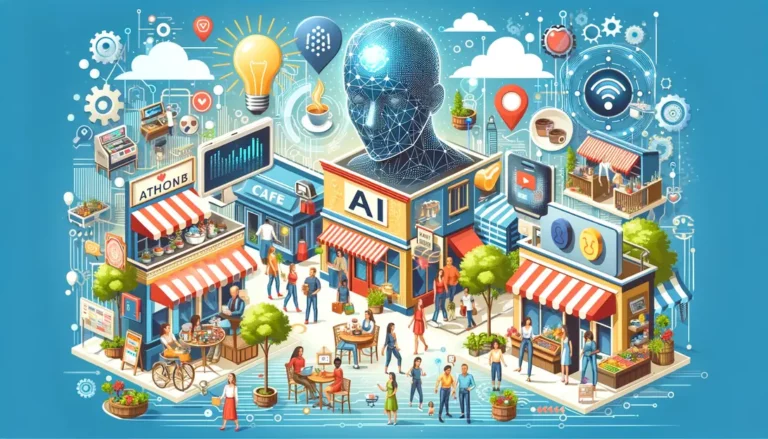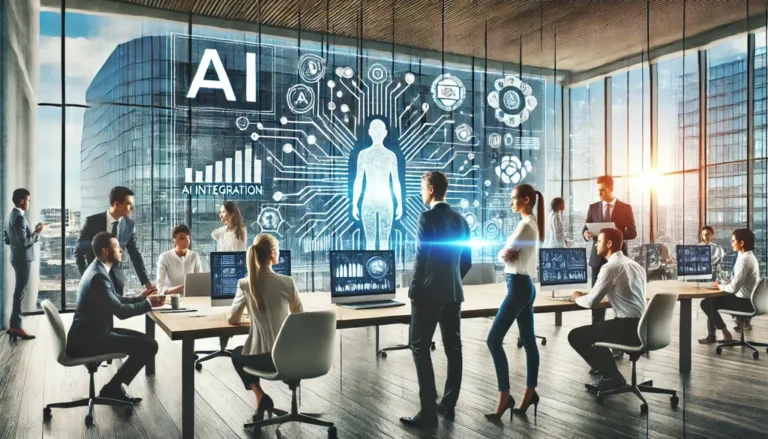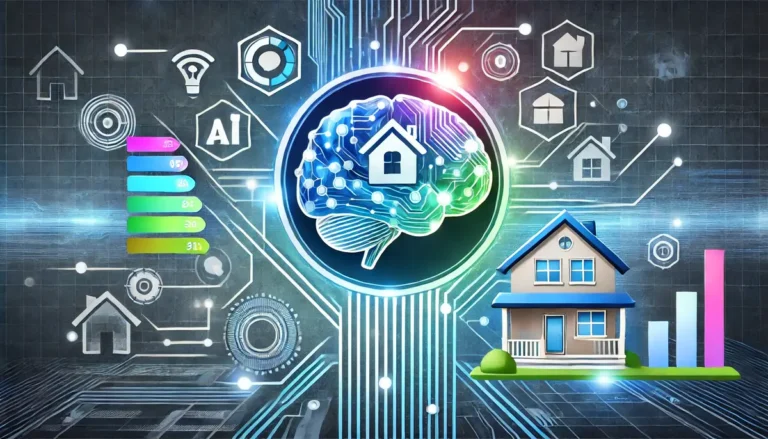Did you know that by 2025, AI could automate 85 million jobs while creating 97 million new ones? This isn’t just a prediction, but a glimpse into the future that’s unfolding right now.
AI is a transformative force reshaping how businesses operate and how people work. Let’s explore in detail how AI is revolutionizing the job market and creating new opportunities.
Save 90% of your call center costs
AI Replacing Jobs
AI is excellent at handling repetitive tasks. These are the kinds of jobs AI is most effective at taking over.
Manufacturing and Logistics
In factories, robots equipped with AI are now performing tasks that used to be done by humans. For example, AI-powered robots can assemble cars, pack products, and even handle complex manufacturing processes with greater speed and precision than humans. This shift means that companies can produce more goods in less time, significantly boosting productivity and reducing costs.
In logistics, AI is revolutionizing the way goods are managed and moved. Self-driving trucks and drones are starting to deliver packages, a trend that is set to grow. AI systems can plan the most efficient routes for deliveries, saving both time and fuel. This technology also helps manage warehouse operations, ensuring that inventory is tracked and moved efficiently.
Customer Service
Have you ever interacted with a customer service bot online? That’s AI in action. These bots can handle a variety of customer queries, from simple questions to complex issues, any time of day or night. They use Natural Language Processing (NLP) to understand and respond to customer inquiries. This means businesses can provide round-the-clock customer support without needing to hire additional staff.
Moreover, AI-powered systems in call centers can assist human agents by providing them with relevant information during customer interactions. This support allows agents to resolve issues faster and more efficiently, improving overall customer satisfaction.
AI Creating New Opportunities
While AI is replacing some jobs, it is also creating entirely new roles and opportunities. These new jobs often involve working with AI or managing it.
New Job Roles
AI needs skilled professionals to develop, maintain, and enhance it. Jobs like AI engineers, data scientists, and machine learning specialists are in high demand. These professionals are responsible for designing AI systems, training them using large datasets, and ensuring they function correctly.
For instance, AI engineers create algorithms that allow machines to learn and make decisions. Data scientists analyze the vast amounts of data generated by AI systems to extract meaningful insights. These insights help businesses improve their operations and make informed decisions.
Tech and Data Analysis
Businesses generate enormous amounts of data every day. AI helps in collecting and analyzing this data, but human expertise is required to interpret the results. Data analysts and data scientists play a crucial role in this process. They look at the data, find patterns, and provide actionable insights that help companies improve their products and services.
For example, a retail company might use data analysis to understand customer preferences and buying patterns. This information can then be used to tailor marketing strategies and improve inventory management, ultimately boosting sales.
Education and Training
As AI technology advances, there is a growing need for education and training. New courses and programs are being developed to teach people how to work with AI. Schools and universities are integrating AI-related subjects into their curriculums, preparing students for the jobs of the future.
Online learning platforms are also offering courses in AI, making it accessible to a wider audience. This helps people from various backgrounds gain the skills needed to work in the AI field.
AI and Entrepreneurship
AI is not just for large corporations; it’s also a valuable tool for small businesses and startups.
Helping Startups
AI tools can help new businesses get off the ground. For example, AI can analyze market trends and customer preferences, providing valuable insights that help entrepreneurs understand what people want and how to serve them better. This information is crucial for developing successful products and services.
Startups can also use AI to identify potential customers and tailor their marketing efforts accordingly. This targeted approach can lead to higher conversion rates and increased sales.
Business Management
AI can simplify many aspects of business management. There are AI tools available that handle tasks such as accounting, marketing, and even hiring. For instance, AI-powered accounting software can manage financial records, generate reports, and ensure compliance with tax regulations. This allows business owners to focus on their core activities while AI takes care of routine tasks.
AI can also assist with marketing by analyzing customer data to determine the most effective strategies. This helps businesses reach their target audience more efficiently, saving time and resources.
Innovation in Products and Services
AI drives innovation by enabling businesses to develop new products and services. For example, AI can help create new apps or improve existing ones by analyzing user behavior and preferences. This ensures that the apps are user-friendly and meet customer needs.
In addition, AI can be used to invent new gadgets and technologies. For example, AI is being used to develop smart home devices that can learn user preferences and automate various tasks, making life more convenient.
AI in Different Sectors
AI is making a significant impact across various industries. Here are some detailed examples:
Healthcare
In healthcare, AI is helping doctors diagnose diseases faster and more accurately. AI algorithms can analyze medical images, such as X-rays, MRIs, and CT scans, to detect signs of illness. For instance, AI can identify tumors, fractures, and other abnormalities that might be missed by human eyes. This enables doctors to provide quicker and more accurate diagnoses, leading to better patient outcomes.
AI is also being used in predictive analytics to forecast patient outcomes and suggest treatments. By analyzing patient data, AI can predict which patients are at risk of developing certain conditions and recommend preventive measures. This helps doctors make informed decisions and provide personalized care.
Finance
In finance, AI plays a crucial role in detecting fraud. AI systems can analyze transaction patterns and identify unusual activities that may indicate fraudulent behavior. For example, if your credit card is used in two different locations within a short period, AI can flag this as suspicious and alert you immediately.
AI is also used in automated trading, where it can analyze market trends and execute trades at the optimal time. This allows investors to maximize profits by taking advantage of market fluctuations. Additionally, AI helps financial institutions assess risks and make informed decisions, improving overall financial stability.
Retail
In retail, AI enhances the shopping experience by offering personalized recommendations. Online retailers like Amazon use AI to suggest products based on your browsing history, past purchases, and similar customer preferences. This personalized approach not only increases sales but also improves customer satisfaction.
In physical stores, AI helps manage inventory by predicting demand. It analyzes sales data, seasonal trends, and even weather patterns to forecast which products will be popular and when. This ensures that stores are stocked with the right products at the right time, reducing the risk of stockouts and overstocking.
AI-powered chatbots provide instant customer support, answering queries and helping customers find products. These chatbots use NLP to understand and respond to customer questions, providing a seamless shopping experience.
Education
In education, AI provides personalized learning experiences. AI-powered platforms can adapt lessons to fit each student’s needs and pace. For example, if a student struggles with a particular topic, the AI system can provide additional resources and exercises to help them understand it better.
AI also helps with administrative tasks, such as grading and scheduling. Automated grading systems can quickly evaluate assignments and provide feedback, freeing up teachers to focus on instruction. AI can also help create personalized study plans and track student progress, ensuring that each student receives the support they need to succeed.
Challenges of AI Integration
Despite its many benefits, AI also presents several challenges that need to be addressed.
Ethical Concerns and Biases
AI systems can sometimes exhibit biases, reflecting the data they were trained on. For example, an AI hiring system might favor certain groups of people over others if the training data is biased. It’s essential to ensure that AI systems are fair and unbiased, which requires careful design and ongoing monitoring.
Ethical concerns also arise when AI systems make decisions that impact people’s lives. For instance, using AI in hiring or lending decisions requires transparency and accountability to ensure fairness.
Data Privacy and Security
AI relies on vast amounts of data, raising concerns about privacy and security. Companies must ensure that the data they collect is protected and used responsibly. This includes complying with data protection regulations and implementing robust security measures to prevent breaches.
Additionally, there is a need for clear policies on how data is collected, stored, and used. This helps build trust with customers and ensures that their privacy is respected.
Need for Regulatory Frameworks
As AI becomes more prevalent, there is a growing need for regulatory frameworks to ensure its ethical and safe use. Governments and organizations are working on creating guidelines and standards for AI deployment. These regulations should address issues such as transparency, accountability, and data protection.
Developing and implementing these frameworks requires collaboration between policymakers, industry leaders, and researchers. This ensures that AI benefits society while minimizing potential risks.
Future of AI in the Job Market
The future of AI in the job market holds both opportunities and challenges.
Predictions for AI’s Impact
Experts predict that AI will continue to transform the job market, with some jobs disappearing while new ones emerge. The key to thriving in this changing landscape is to adapt and learn new skills. Workers must be prepared to transition to new roles that involve working with or managing AI systems.
For example, as AI takes over routine tasks, there will be a greater demand for jobs that require creativity, problem-solving, and human interaction. Roles in AI development, data analysis, and tech support are expected to grow.
Balancing AI and Human Work
AI excels at tasks that are repetitive and data-driven, but humans are better at creativity, empathy, and complex problem-solving. The future will likely see a balance between AI and human work. People will work alongside AI, using it to enhance their abilities and focus on tasks that require a human touch.
This collaboration can lead to more efficient and productive workplaces. For instance, AI can handle routine customer service inquiries, allowing human agents to focus on more complex and emotionally nuanced interactions.
Preparing for an AI-Driven Future
To prepare for the changes AI will bring, it’s important to invest in education and training. This includes not only teaching technical skills but also fostering creativity, critical thinking, and adaptability. Lifelong learning will be essential as workers need to continuously update their skills to keep pace with technological advancements.
Policymakers and businesses must also create policies that support workers during the transition. This includes providing access to training programs, offering job placement services, and ensuring fair labor practices.
Save 90% of your call center costs
Conclusion
AI is already changing how businesses operate and how people work. It is taking over repetitive tasks, creating new job opportunities, and driving innovation across various industries. While there are challenges, the future of AI in business and the job market looks promising.
By embracing AI and preparing for its impact, businesses and workers can thrive in this new era. The future is now, and AI is leading the way.
By understanding AI examples and its role in business, companies can leverage this technology to drive growth and innovation. The transformation brought about by AI is profound, and those who adopt it will undoubtedly reap the benefits.
The key is to adapt, learn, and embrace the changes that AI brings, ensuring a brighter and more efficient future for all.







